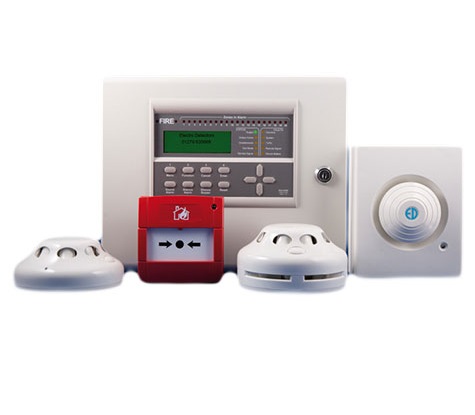The Benefits of Radio / Wireless Fire Alarm Systems
Radio / Wireless Fire Alarm Systems Benefits
Radio or Wireless Fire Alarm Systems first became available in the early 80’s. In these days the early systems began to gain a poor reputation for reliability, mainly related to the radio transmissions and battery life of the devices. However over time the technology involved in these systems has steadily advanced to where we are today. Today’s Radio or Wireless Fire Alarm Systems are light years ahead of their early 80’s ancestors. Interestingly the advance in technology with the radio fire alarm systems has occurred as a bi-product of major advances in technology in the computer, battery and mobile phone industries. Radio Fire Alarm System designers and engineers have embraced and harnessed this technology to create a new generation of radio fire alarm systems that are much more sophisticated in terms of performance, fault monitoring and reliability. These new systems are fully compliant to BS5839 and EN54 and are fully monitored.
One of the main benefits of Radio Fire Alarm Systems is that they reduce the needs to run cables to each individual device on the fire alarm system. Modern radio fire alarm systems will only need cables to be installed to the control and signal booster panel positions to provide a mains supply. This benefit of radio fire alarm systems means that have been ideally suited to listed type buildings. It allows the installation of a fully functioning fire alarm system within the building while not ‘running’ cables where it is impractical to do so. Examples of installations of this type are in Windsor Castle and The Ritz Hotel, both of which have radio fire alarm systems installed. In some instances conservation bodies would also prohibit the installation of cables within protected buildings and radio fire alarm systems may be the only solution to allow the building to comply with current regulations and standards.
Another huge benefit of radio / wireless fire alarm systems is the vastly reduced installation times. As each device is battery powered and does not require a cable to connect it to the fire alarm system, a single device could be installed in a room in around 30 minutes. A hard wired alternative system would in comparison take weeks or months to install, greatly increasing the installation time and the amount of disruption within the building. In a hotel for example installing a ‘hard wired’ type system would take months to install. It may be more cost effective to install a radio fire alarm system when the amount of ‘down-time’ is taken into account i.e. the hotel may lose much more revenue in shutting areas of the building while the installation of a fire alarm system is taking place.
Due to the flexibility and ease of installation, radio fire alarm systems are also being used as temporary systems. Some building companies for example use radio fire alarm systems on sites where fire detection is required whilst building work is on going. These systems can be installed as the building work commences and be used on the project until the project is finished. The system can then be simply taken down ready to be used on their next project. The benefit of flexibility can also seen when using radio fire alarm systems on projects with phased construction works. The devices can be simply added and removed as work is on going without having to add and remove cables and therefore speeding up the construction process.
The increase in reliability of Radio Fire Alarm Systems is now a huge benefit. Radio Fire Alarm Systems have now been allocated a dedicated communication frequency to use. In the past one problem with radio fire alarm systems was that they were using similar communication frequencies to other services, such as the radio communication with taxi companies for example. This lead to interference with the two systems and false alarms occurring. However now with the new dedicated frequencies this can no longer happen and as a result the systems are much more reliable. The reliability of radio fire alarm systems is also dependent on a successful radio survey being carried out by a person trained to carry out a radio fire alarm survey. This is to ensure that the building is suitable for a radio fire alarm system and also to ascertain where the fire alarm panels and signal booster panels should be installed.
Advances in battery technology have enabled radio fire alarm systems to become easier to manage in terms of maintenance. As the devices on a radio fire alarm system are all battery powered, there is no escaping the fact that these batteries will need to be changed. However radio fire alarm manufacturers are embracing new battery technology to increase the battery life of their devices. Many radio fire alarm system manufacturers are now using lithium batteries. These batteries have a much greater life span than the batteries that were traditionally used and many radio fire alarm manufacturers are quoting life spans of up to 5 – 7 years for the batteries used within their system devices.
In conclusion radio fire alarm systems if correctly surveyed and installed offer huge advantages over traditional ‘hard-wired’ fire alarm systems. Offering greater flexibility, reduced installation times and huge leaps forward in the reliability in the systems over the last 20 years.

For more information please click the following link:- Wireless Fire Alarm System






